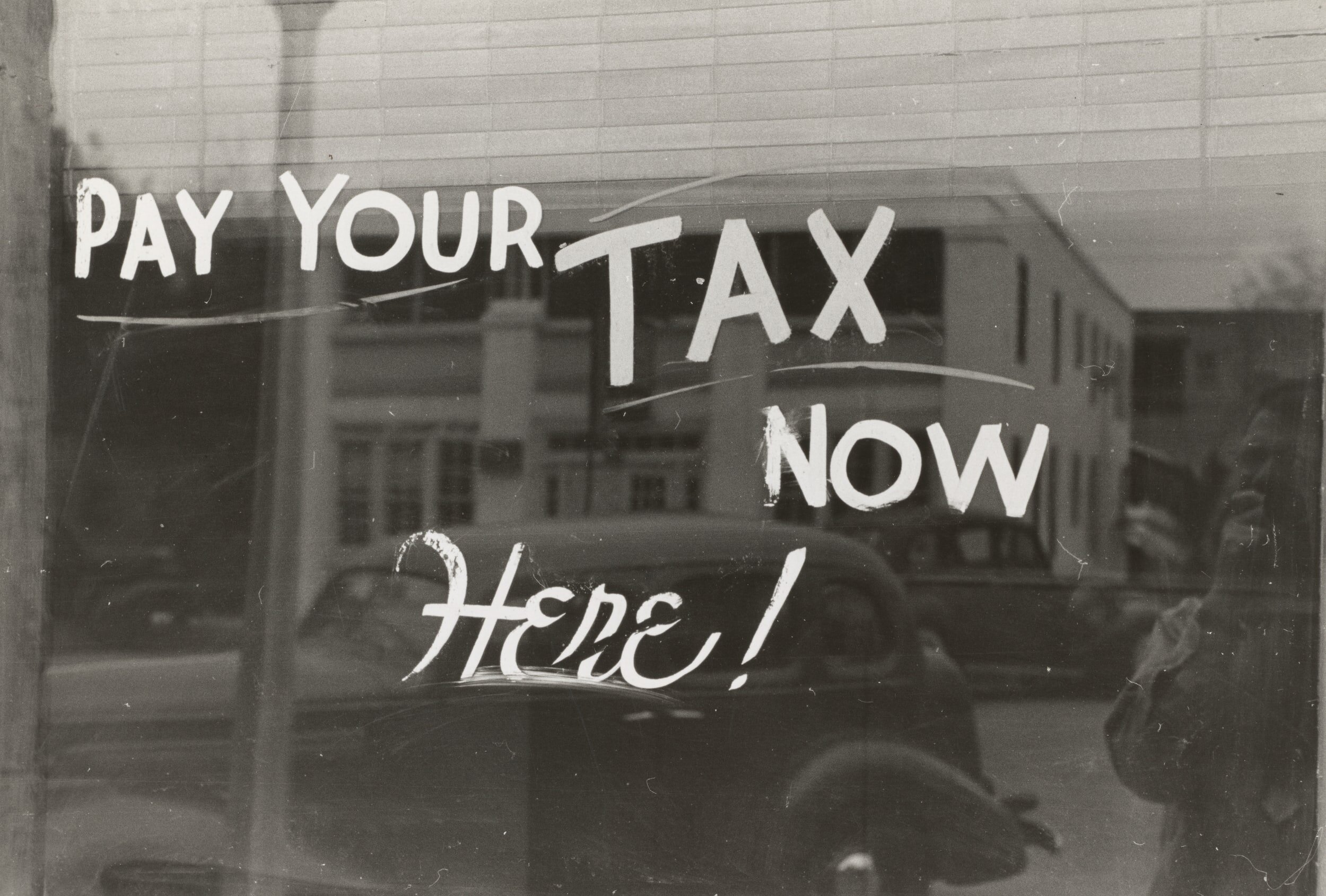
A Guide To Preparing the T2125 For Small Business Or Self Employed Owners
While being self employed comes with numerous benefits, there are also many challenges. One of the major ones is ensuring that you are aware of, and fulfill, your tax obligations on a timely basis. In the beginning these tax obligations can seem mystifying and somewhat overwhelming, but once you understand what needs to be done and you set up processes and reminders, it tends to become much more manageable. This in turn reduces stress as tax deadlines approach and can result in significant potential tax savings as you keep track of all your tax deductions and avoid interest and penalties.

What is Capital Cost Allowance and How Does it Impact Your Business
Frequently a client of mine will purchase a high ticket item such as a computer or a piece of furniture and will simply show it as an expense on their profit and loss. Since you purchased something that relates to your business, it should be considered to be a deduction and classified as an expenses.
Unfortunately, accountants and revenue agencies do not see it this way. From their perspective, an item that is purchased for a business, whose value extends beyond one year, is actually an asset that should be depreciated over the useful life of the asset. In other words, the expense that you can claim for the asset is only the portion of the asset that is used in the year that you claim it.
While accountants refer to the amount of the asset that is expensed each year as depreciation, Revenue Canada refers to this as capital cost allowance or CCA.

What Small Business Owners Should Know about Leasing vs Buying their Car, Corporate Ownership of Vehicles and Deducting Car Expenses

Tax Deductions vs Tax Credits and 5 Tax Deductions to Help Reduce Your Tax Bill
Most taxpayers use the terms tax deduction and tax credit interchangeably. Since they are not accountants, this is perfectly fine unless you are particular about precision and strive for a greater understanding of tax. And while there a numerous technicalities and jargon in tax that are better left to tax professionals, this particular distinction is fairly straightforward , can useful to understand and might even save you some tax.
So, what is the difference? A tax deduction is a reduction of your net income on which your taxes payable are based, while a tax credit is a direct reduction of your taxes payable. These might sound very similar, but their impact on how much tax you pay is different. Since there are different tax brackets, a tax deduction results in a reduction of your taxes payable effectively at the highest tax bracket to which your income applies, while a tax credit (for simplicity we are only talking about the federal portion and not provincial) will only reduce your taxes by 15%, which corresponds to the lowest tax bracket. While this can get significantly more complicated, suffice it to say, if your income exceeds approximately $50k, tax deductions have a higher value i.e. they reduce your taxes by a greater amount than a tax credit since part of the $50k will be taxed based on a higher tax bracket.

Financial Roadmap for Employees Transitioning to Self-Employment
Deciding to transition from being an employee to self-employed business owner/freelancer/independent contractor. can be a significant life event. It can certainly be exciting as you relish the thought of greater freedom, flexibility and the ability to exercise your creativity in ways that you cannot when you are an employee. However, there is also a great deal of uncertainty, both professionally and financially. And while you cannot control the outcome, understanding where the uncertainty might come from will help you be much better prepared.

What Unincorporated Small Business Owners Need to Know about Filing Their Taxes
Being a small business owner comes with challenges, not the least of which is doing your taxes. While most Canadian taxpayers have relatively simple tax returns that can easily be completed using software, small business owners have the additional burden of reporting details relating to their businesses. This can seem onerous, but understanding what needs to be done, and when, can significantly help reduce the stress and ensure that the tax filing process is smooth and straightforward.
One of the types of income on which you pay income taxes is what Revenue Canada (CRA) refers to as “income from self-employment” that is essentially the same as income from a small business. If you do have business income, then you are required to declare your business income on a tax return. As an unincorporated small business owner, this business income is reflected on a separate schedule on your personal tax return. The schedule is called a T2125, which is a “statement of business activities” (discussed below) and at minimum requires that you show any income you earned from a business venture. If you have incurred expenses to earn the business income, you may also deduct these from your gross revenues or sales to arrive at net income from business. Unlike a simple personal tax return with no business income, the information that must be reported on a T2125 is generally not simply provided to you on a tax slip, such as a T4 or T5, but must be compiled and calculated.

20 Essential Tax Facts for Small Business/Self Employed Owners
Probably the most popular question posed to accountants and tax preparers (especially around this time of year) is what types of expenses are deductible. The short answer is that an expense is considered to be deductible if it has been incurred with the ultimate purpose of earning income. For example if you purchase a domain name with the intent of setting up a website to sell your goods or services, this would be a deductible expense. However, if the purpose of your website is simply a place to show pictures of your cat, this would not be considered a business and therefore not a deductible expense. Of course if your cat picture website starts to become popular and you decide that you want to actively build this business by advertising on the site or partnering up with cat product resellers, your non commercial hobby could then be considered a business. Since you now have the intent to build a business the income earned would have to be reported and expenses incurred to earn this income would be deductible.

How To Account for Car Expenses and Reflect Personal Use
If you use your car for business then you will want to track car expenses more granularly to see what you have spent in the current period and to compare with prior periods and also to make it easier to reflect the breakdown on your small business taxes

What Types of Advertising/Marketing Expenses Can Small Businesses Deduct?
In the past advertising for small business owners mostly involved ads for print, television or radio (a catchy jingle was always a good way to go), cold calling (rarely a pleasant experience), sending out flyers or courting potential customers at a conference. Unfortunately, these types of advertising were problematic in that it is difficult to gage the direct impact of their effectiveness. Additionally, they were often fairly costly, which can especially difficult for small business owners to afford.
Over the past few years the avenues for advertising have grown exponentially. Many types of advertising don’t even cost anything, except time. You can buy ads on numerous social media outlets that appeal to your target market or if you want to go the free route, you can set up a social media account, post regularly and build an audience. Alternatively, you can set up a website which you can then optimize so that google and other search engines display it when someone is looking for your product or service. Email newsletters are also another effective and direct way of reaching potential buyers. One of the great benefits of these types of advertising is that you are better able to monitor the effectiveness of your chosen strategy.

What Types of Car Expenses Can Business Owners Deduct
Access to a car can be crucial to running a small business effectively. Costs of ownership, however, can be high relative to your revenues, especially in the early stages when your business is not hugely profitable. Luckily, Revenue Canada (CRA) and Revenue Quebec (RQ) allow both unincorporated/self employed individuals and owners/employees of corporations, who use their cars to generate income, to deduct the relevant expenses. Both CRA and RQ provide detailed guidance and have specific rules relating to the write off of car expenses. I discuss some of the main provisions that impact small business owners in this article and provide guidance on the differences between unincorporated (self employed/small business) owners and corporations.

How to Calculate Your Automobile Taxable Benefits for the Purposes of the T4 and Rl1
The majority of businesses require the use of cars and other types of vehicles to meet with clients, and suppliers, purchase goods, make service calls and of course check in with their accountants. The usage of a car is not necessarily straightforward as many employees and business owners use their vehicles for both business and personal reasons. As such, Revenue Canada has had to implement tax legislation that ensures that the personal portion of automobile usage is properly adjusted and excluded from deductible businesses expenses.

Are Gifts to customers and business associates deductible expenses?
Giving gifts to clients or customers can be a great way to build goodwill, foster customer loyalty and differentiate yourself from your competition. Gifts can be anything from a simple bouquet of flowers to something a bit more personalized based on your knowledge of the customer (it can be useful to listen carefully or probe gently to find out what your customers might want as a thoughtful gift can be tremendously impactful). A gift can be given around the holidays, on birthdays, after closing a sale or any other time as a simple thank you. Of course, if you are buying gifts on behalf of your business, it is important to understand if they qualify as tax deductible expenses and it what circumstances.

Guidance on Deducting Home Office Expenses
One of the benefits of having a home based business (for freelancers, self employed contractors and small business owners) is that you can deduct the expenses relating to the space that you use to work. This can result in a reduction in your tax bill for costs that you would incur regardless, which is certainly an incentive to being your own boss.
Criteria for Deductibility:
For home office expenses to be deductible, they have to meet the following criteria:
It has to be your principal place of business i.e. you cannot deduct home office expenses if you have another office that relates to your business, elsewhere, even if you work 22 hours a day or you check your blackberry in bed.
The space designated as your home office is used to earn business income and/or you meet clients or customers on a regular basis. You can deduct expenses relating to the workspace in your garage which is used for home improvement projects.

Are Clothing and Other Personal Attire Costs Tax Deductible?
Whether an expense is quite clear for the majority of expenses – salaries paid to employees, office rent, manufacturing supplies etc. , there are a handful of expenses that are more ambiguous. One of the more notable (and often asked) examples of this type of expense relate to personal attire including clothing, shoes and other personal maintenance costs (haircuts, beauty products etc)

Guidelines For Deducting Conference and Training Expenses
Attending conferences and investing in ongoing training can be a great way for small business owners and the self employed to keep current on industry developments, ensure ongoing professional development and improve their skills. It also allows for networking opportunities and occasionally includes trips to exotic locations, which can be a welcome change in environment from working at your office. As an added bonus ,the cost of conferences, conventions and seminars as well as corresponding travel expenses are deductible against your business income, subject to specific guidelines.
